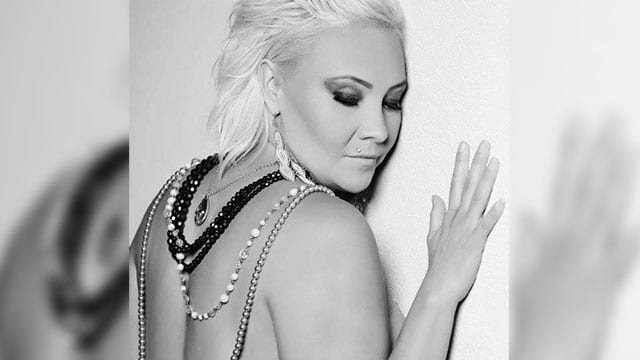
The Indigenous Music Awards (IMA) aren’t backing down after an accusation of cultural appropriation between Indigenous nations.
The organization said in a news release Tuesday the nomination of throat-singing Cree artist Connie LeGrande will not be changed despite complaints from an Inuit women’s collective.
“Since the request of the Arnaqquasaaq Collective was stated, the Manito Ahbee Festival has proceeded with due diligence,” a statement from IMA emailed to APTN News said.
“Engaging the Indigenous Music Awards Committee, the Elders’ Committee, Inuit representatives and the Board of Governors, who made the decision that the nomination will stand for the artist in question – based on the current rules and regulations.”
The statement noted LeGrande’s nomination is for Best Folk Album and not Best Inuit, Indigenous Language or Francophone Album.
But the collective isn’t upset with the category – just who is performing the music.
“Throat-singing is an Inuit custom,” Kathleen Ivaluarjuk Merritt, a musician also known as “Iva”, said Monday.
She said the collective asked LeGrande “respectfully” in private conversations on Facebook to decline from throat singing.
Iva and other artists threatened Monday to boycott the upcoming awards ceremony in Winnipeg unless they receive an apology, and LeGrande’s nomination is rescinded.
“How can you have Indigenous Music Awards without Inuit?” asked Inuk throat singer Kelly Fraser.
Fraser said going public with their concerns came after months of trying to resolve the situation with the IMA behind the scenes.
This is really important.
Cultural appropriation can occur between Indigenous nations.
We need to support each other in the reclamation of our cultures without repeating the colonial approach.
Let’s elevate, not appropriate. https://t.co/2I7QVezmcQ
— Jesse Wente () March 30, 2019
Throat-singing duo PIQSIQ, based in Yellowknife, also pulled its album from the awards.
“We look forward to submitting future work once our concerns of cultural appropriation are taken seriously and policies are in place to prevent it from happening again,” the group tweeted with the hashtags “#inuitthroatsinging is for #inuitreclamation.”
The IMA confirmed in its statement it would develop a policy on cultural appropriation and add an Inuit representative to the board.
“We have been presented with a very difficult task, to decide if an individual artist is over stepping creative boundaries that some feel is not her right,” the statement added.
“We don’t presume to agree or disagree on this matter at this time, as it requires great reflection, ceremony and discussions on how we move forward in a good way, to ensure that we as Indigenous people uphold our teachings, and do not provide a platform for negativity and separation.”
IMA said it “presents itself with transparency” yet declined to answer specific questions.
“We have not dismissed this matter in any capacity,” it noted in the statement.
“We recognize the importance of building representation and programming that shares common values.”
Both Fraser and Merritt declined to comment further Tuesday.
A spokeswoman for Six Shooter Records, which represents a variety of Inuk artists including collective member and throat singer Tanya Tagaq, said there may be more to come.
“I will be in touch if/when Tanya is available to chat (and/or if she or the larger group decide to issue a statement),” said publicist Emily Smart.
Major event sponsor Manitoba Liquor and Lotteries said no one was available to answer questions on the issue.
APTN is also a sponsor of IMA.










The Arnaqquasaaq Collective states that Tanya’s form of throat singing is something uniquely created by her. Yet above Tanya says “this form was unique to Inuit culture”. Which is it? It doesn’t seem traditional at all, not that it has to be, but I think we should recognize this for what it really is, Tanya protecting her own brand.